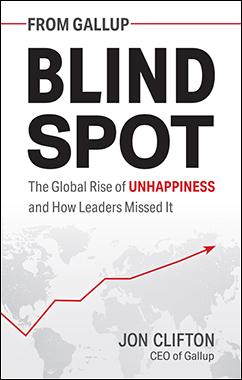Story Highlights
- 65% of Italians approved of outgoing Prime Minister Mario Draghi
- 33% said their standard of living was getting better, up slightly from 27%
- 41% were confident in their national government, up slightly from 35%
WASHINGTON, D.C. -- Just when Italians were starting to place more faith in their national government, they find themselves going to the polls again this weekend to choose a new one.
Gallup surveys conducted shortly before outgoing Prime Minister Mario Draghi's government collapsed in late July -- prompting the snap election on Sunday -- showed Italians largely approved of Draghi's leadership and were slightly more optimistic about where their standard of living and leadership were headed. These data were also collected prior to reports in August showing that inflation had surged to a 37-year high in Italy.
Quick Summary: In roughly one week in July, the Draghi government went from appearing stable and popular to calling snap elections.
This shift took place when the left-leaning Five Star Movement party objected to funding for a new waste incinerator outside of Rome, which was bundled into legislation designed to shield Italians from rapidly increasing prices. Unable to move forward with this key legislation, Draghi ultimately resigned on July 21.
Experts predict it is highly likely a coalition of right-wing political parties will receive enough votes to form a new government in the election. If this happens, Brothers of Italy party leader Giorgia Meloni will become Italy's first female prime minister.
Meloni has railed against the European Union in the past but has softened her rhetoric as the election approaches, pledging to continue receiving EU assistance funds as the Italian economy struggles against higher energy and other commodity prices.
Draghi Was Popular Before His Government Collapsed: Earlier this summer, nearly two in three Italians (65%) approved of Draghi's job performance, the highest level that Gallup has seen for an Italian prime minister.
Only Italian President Giorgio Napolitano received a higher level of approval in 2012, with 71% of Italians approving of the job he was doing. Draghi's level of approval in 2022 was typically at least 19 percentage points higher than three of his four predecessors. Only Draghi's immediate predecessor, Giuseppe Conte -- who was instrumental in the collapse of Draghi's government -- came close to Draghi's level of job approval with a rating of 60% in 2020.
Italians Saw Their Standard of Living Getting Better, but Still Lackluster: Before the collapse of Italy's government, 33% of Italians said their standard of living was improving, while 29% said it was getting worse. This is the highest level of optimism since before the start of the COVID-19 pandemic in the country, when a similar percentage of Italians in 2019 also said their standard of living was improving.
Italians' Confidence in National Government Was Up, but Still Tepid: In 2022, 41% of Italians expressed confidence in their national government, similar to the previous high of 40% in 2009. Italians' confidence this summer was well above levels seen before the COVID-19 pandemic, when 22% in 2019 were confident in their national government.
Implications
Draghi's government had been viewed as largely stable and making significant progress in several key areas. In fact, The Economist named Italy "Country of the Year" in 2021. However, in the space of a week in July, the parties of the governing coalition unraveled, undone by an effort to support the Italian people in the face of rising living costs. It also happened despite large numbers of Italians voicing support for the outgoing prime minister.
A coalition bloc of right-wing political parties has formed to fill the resulting void. The rising costs of living and immigration are the primary issues in the election, and finding a path that shields Italians from increasing costs of energy and other resources due to the war in Ukraine is likely to prove difficult. Failing to do so may result in a substantial negative turn on the key economic measures that had been improving among Italians a short time ago.
To stay up to date with the latest Gallup News insights and updates, follow us on Twitter.
For complete methodology and specific survey dates, please review Gallup's Country Data Set details.
Learn more about how the Gallup World Poll works.





